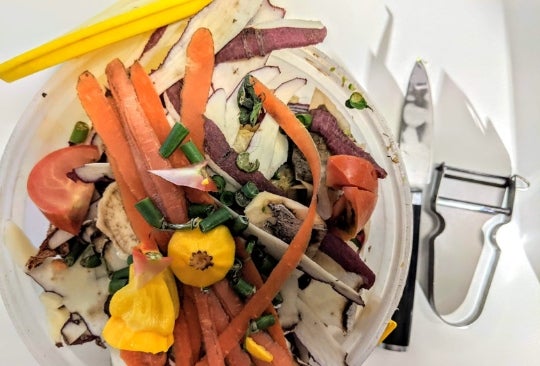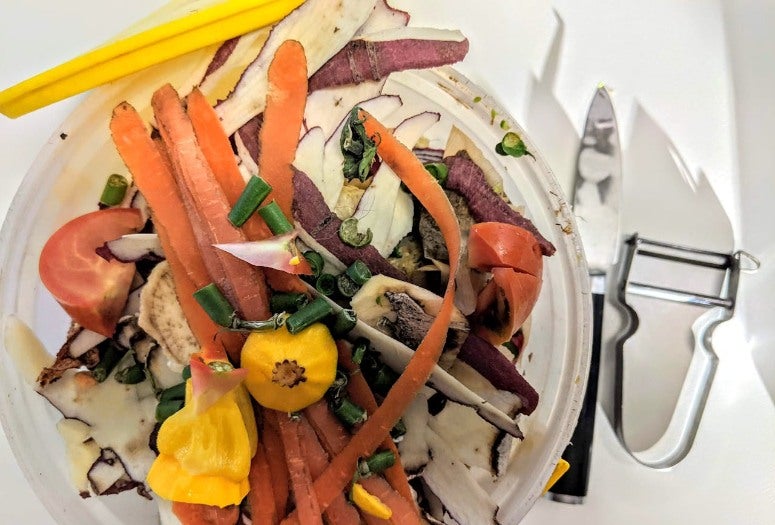Rice University recently crossed a significant milestone with its sustainability efforts. The campus has diverted more than 1 million pounds of food waste from landfills to composting since the composting program’s inception in November 2020.

Food waste comprises about one quarter of all landfill waste according to the U.S. Department of Agriculture and has been reported by the Environmental Protection Agency to be the most disposed material in landfills. When present in a landfill, food waste becomes trapped under other materials where oxygen cannot flow, which prevents aerobic bacteria from breaking down the food waste and turning it into carbon dioxide. Instead, anaerobic microbes break it down and release the potent greenhouse gas methane as a byproduct. The EPA estimates that for every 1,000 tons of food waste that is landfilled, approximately 34 metric tons of methane emissions are released.
Recognizing the need to be part of the solution, Rice took action.
“The genesis of the current composting program was a partnership between Housing and Dining, the Office of Sustainability and an undergraduate student named Ashley Fitzpatrick,” said Richard Johnson, senior executive director for sustainability at Rice.
“We spent quite a bit of time developing options for food waste composting at Rice with those efforts really ramping up in 2019. After a pilot project, further reflection and an interruption due to the pandemic, we found Moonshot Compost, and they proved to be the partner we needed.”
Fitzpatrick has since graduated, and serendipitously she now works for Moonshot Compost, an organization aiming to transform the way society thinks about excess food to see it not as trash but as a resource. Moonshot is the partner organization that helps bring Rice’s compost program to fruition.
Student involvement continues to be a staple of the program. Currently, an undergraduate student intern in the Office of Sustainability, Isabelle Chang, helps to keep the program running. Chang ensures compost bins within the serveries are placed during meal periods and educational signage is visible. She also serves as a critical liaison, sharing concerns or feedback from Rice student group EcoReps and other students with the Office of Sustainability and the Housing and Dining team to continuously improve the program.
Interestingly, this is not the first time Rice has tried a composting program.
“Many years ago — from the late 1990s to about 2007 — we had an on-campus composting device called the Earth Tub that provided food waste composting at one campus kitchen,” Johnson said. “However, the device failed, and frankly, the process of operating the device, getting the food waste into the device and maintaining it all proved onerous. Interest in composting remained after we decommissioned the Earth Tub, and for years we looked for alternatives [before finding Moonshot Compost].”
Rice’s results with Moonshot Compost are visible via a dashboard: rice.moonshotcompost.com/west-servery. Toggle between each collection point by clicking on a location name underneath “Results by Location.”

